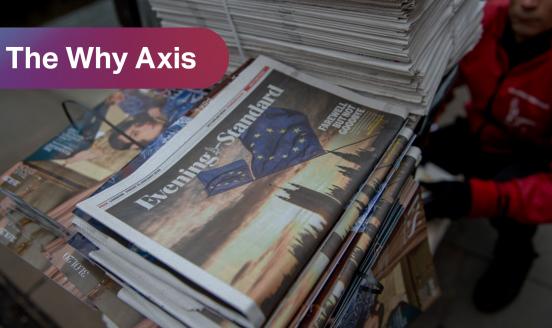“Unanimous” is the new black
As it was largely anticipated, no new measures were announced Thursday at the ECB meeting. But sometimes words can be as important as facts.
One month has passed since the announcement of the asset purchase programmes, but pressure for action has not eased at all, for the ECB. Besides witnessing weak figures for the economic and inflation outlook, Frankfurt now finds itself in between two forces pulling in opposite directions: on one hand the FED – which is ending its stimulus – and on the other hand the Bank of Japan – which unexpectedly decided to expand its QE programme, pledging to grow the monetary base by ¥80tn ($700bn) a year.
But before taking any additional steps, the ECB needs first to assess the effectiveness of recently agreed measures, on which it has pledged quite a big reputational stake. Therefore, things are moving slowly in Frankfurt. €3.1bn in new purchases were settled last week under the third Covered bond Purchase Programme (CBPP3) and the ECB announced the appointment of executing managers for the ABS programme, which is expected to start later in November. But no additional details were revealed on the latter, most notably on whether the political opposition to purchases of ABS mezzanine tranches can realistically be overcome.
ECB watchers were however not denied their monthly dose of satisfaction. Expectations this month were high for a sparkling Q&A session, after a Reuters’ article reported the existence of strong disagreement within the Governing Council and suggested some members intended to raise openly their concerns with Draghi’s “management style”, on the occasion of an informal working dinner on Wednesday.
According to Reuters, one of the points that had caused more discontent within the Governing Council was Draghi’s statement, during the past press conferences, that the ECB’s new measures would be expected to stir the Central Bank’s balance sheet back to the level it had in 2012. Such announcement, which allegedly had not been agreed beforehand, was welcomed very well by the markets and it goes without saying that the ECB’s backtracking on it could have been disastrous.
But Mr. Draghi was not caught off guard and during the press conference he clearly showed to have internal dissent under control. He not only repeated the point about balance sheet expansion, but he did so during his introductory remarks, rather than the Q&A session. This might look like an irrelevant detail, but in Central Bank’s jargon – where every single words matters – it actually makes a substantial difference. The introductory statement is signed off by the whole Governing Council, as the ECB president himself stressed a number of times Thursday. Therefore, the inclusion of the controversial point in the introductory statement is clearly meant to show that the ECB’s latest measures are fully endorsed.
Draghi also dispelled any remaining ambiguity about the size of the balance sheet increase, clarifying that the 2012 reference is to the level reached after the second LTRO, when the ECB balance sheet was at its highest. This clarification implies a €1 trillion increase to be achieved, and it is quite important from a communication perspective, because it acts as a commitment device. On Thursday, the central bank implicitly tied its credibility to a specific target: markets know that now, and their expectations will need to be fulfilled.
Unless it wants to put its credibility at stake, the ECB will then be forced to do more, if the currently agreed measures were to prove inefficient to reach the target or the inflation outlook were to worsen. Draghi reinforced his dovish message on Thursday by saying the Governing Council unanimously acknowledges it, and by suggesting that preparatory work for this eventuality is already underway at that ECB. No hint was given about the timing, but all eyes will obviously be pointed at December Eurosystem projections. Concerning what could be done, the door was left completely open.
Despite apparent lack of action, the ECB meeting was not an irrelevant one. Draghi clearly showed that divergences of views within the Governing Council will not be allowed to put the credibility of the ECB at stake. The message delivered on Thursday was overall extremely dovish and clarified that, no matter how we got here, we should from now on consider the target of €1trillion balance sheet increase as set in stone. Such explicit commitment reinforces the credibility of the additional claim that further measures would be introduced if the target could not be reached. But it also raises the pressure on the ECB. As the bar of expectation as never been higher, divergences are likely to re-surface in the politically complex environment the ECB has to navigate through, promising much more interesting developments for the months ahead.
Republished with permission from MNI News.



